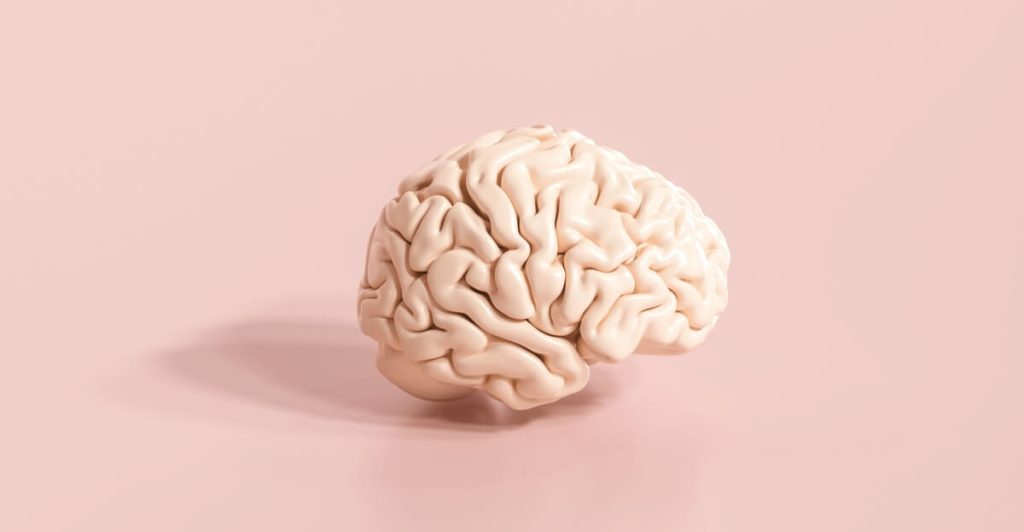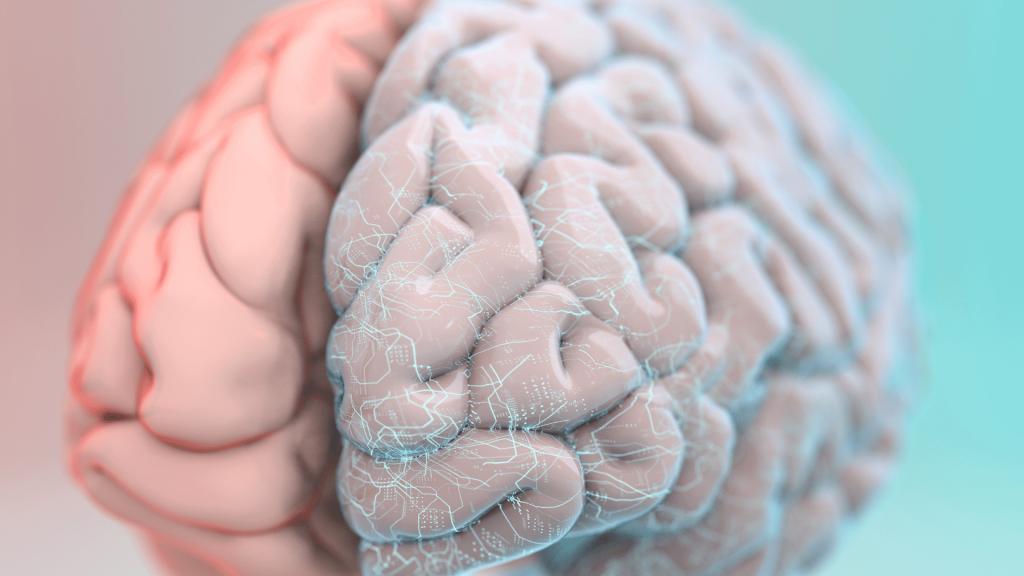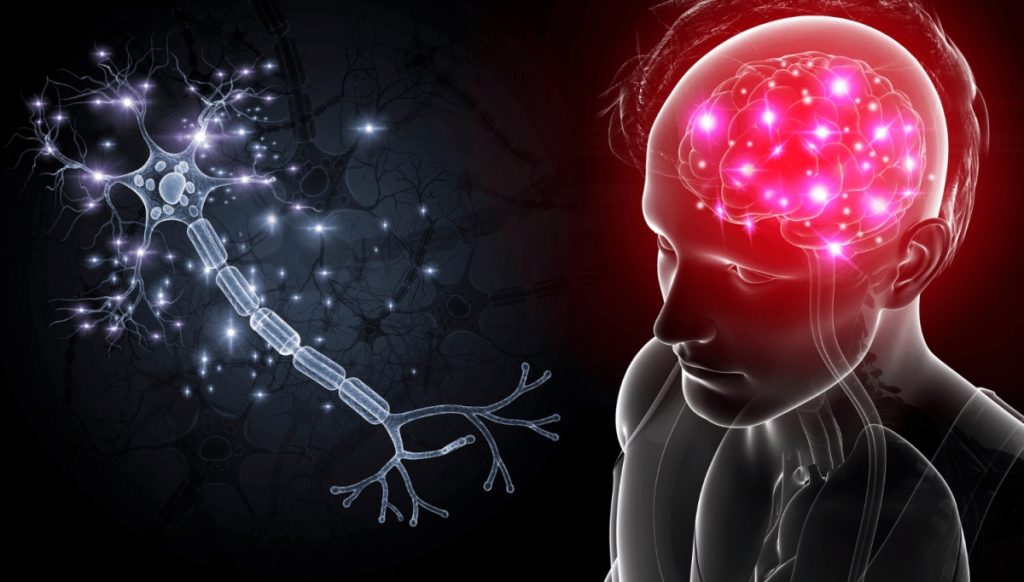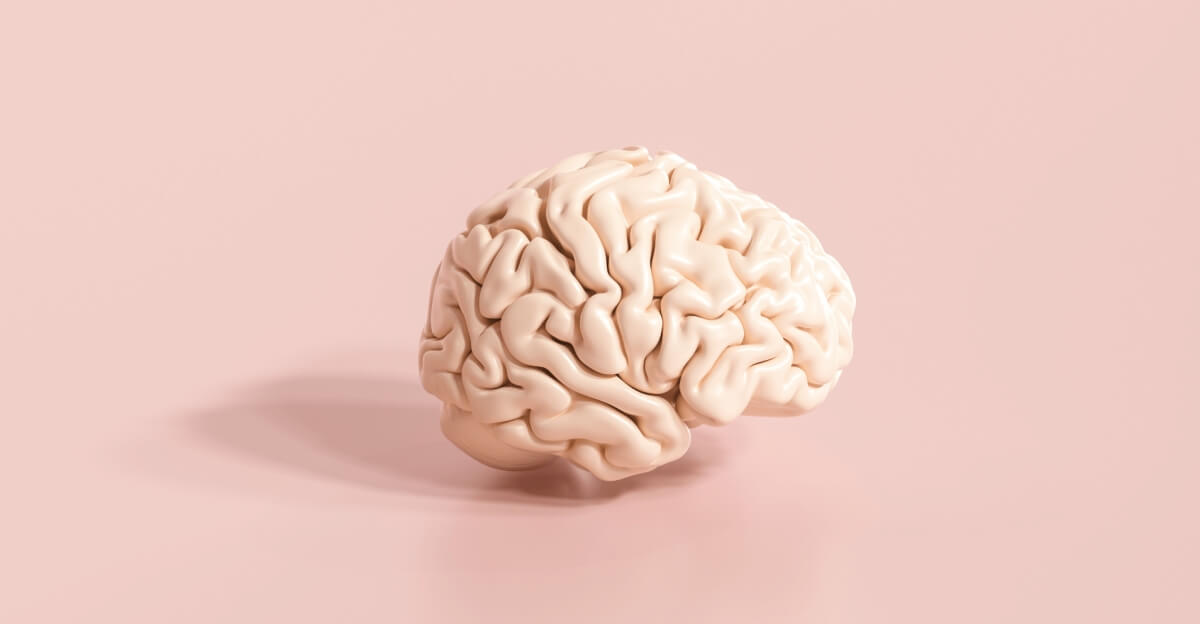It affects all your body functions including your brain function. It helps with neurotransmitter production, hormone regulation, detoxification, and DNA expression.
In this article, you will learn what methylation is and how it affects your cognitive health. We will also explore how you can improve your methylation to improve your brain function.

What Is Methylation?
Methylation is a chemical reaction in which a one-carbon unit called a methyl group is added to DNA, proteins, and other molecules. Methyl group is a group of four atoms, one carbon, and three hydrogen atoms (CH3).
Depending on which part of the DNA is methylated or not methylated, specific genes can be turned on or off like a lightswitch. In biochemistry, the word methylation refers specifically to DNA methylation. But it’s important to remember that it is part of a bigger system called one-carbon metabolism. DNA methylation is just one of the many reactions that is extensively studied within one-carbon metabolism. The ability to turn on and off genes through DNA methylation is the hallmark of epigenetics and has important implications for many diseases.
One-carbon metabolism refers to a group of reactions in which they transfer methyl groups within each other to make different compounds.
The one-carbon metabolism consists of three main reactions:
- Folate cycle
- Methionine cycle
- Trans-sulfuration pathway (see diagram).
In the methionine cycle, the amino acid methionine from our diet donates a methyl group to make S-adenosylmethionine (SAMe). SAMe donates a methyl group to make S-adenosyl homocysteine (SAH), which then donates to make homocysteine.
The homocysteine is then metabolized in two ways:
- Recycled back to methionine with the help of the folate cycle
- Converted to cysteine via the trans-sulfuration pathway. Cysteine is one of the key amino acids that make up glutathione, your body’s most important antioxidant.
The folate cycle converts inactive folate into active methylfolate with the help of the MTHFR enzyme and vitamins B12, B2, and B6. The activated methylfolate donates a methyl group to homocysteine to recycle it back to methionine.
Your diet has a direct impact on this one-carbon metabolism and thus DNA methylation. This is because the nutrients you absorb influence the relative abundance of these methyl groups.
Specifically, nutrients that you get from your diet, such as vitamins B2, B6, B9 (folate), B12, methionine, betaine, and choline are all methyl donor precursors in the one-carbon metabolism.
How Does Methylation Affect Cognitive Function And Health?

Methylation affects your cognitive function by helping your body:
- Make and activate neurotransmitters
- Make hormones
- And detoxify
Producing And Activating Neurotransmitters
Neurotransmitters are chemical messengers in your brain. Neurons in your brain produce them and use them to communicate with each other.
There are more than 100 neurotransmitters in your body. They can be categorized into 2 main categories:
- Small-molecule neurotransmitters
- Neuropeptides
We are interested in the small-molecule neurotransmitters for this article.
The 6 major small-molecule neurotransmitters are:
- Norepinephrine: Plays an important role in the regulation of attention, arousal, cognitive function, and stress reactions.
- Dopamine: This is our feel-good hormone that is involved in regulating motivation and pleasure.
- Serotonin: Your happy hormone involved in learning, memory, happiness, and cognition. It is also a precursor to melatonin, which is a hormone that helps regulate your circadian rhythm and sleep.
- Acetylcholine: The main neurotransmitter of the parasympathetic nervous system. In the brain, it’s also essential for memory and learning. Outside the brain, it’s crucial for muscle contractions.
- Glutamate: The major excitatory neurotransmitter in your central nervous system. It plays an important role in shaping memory and learning. It is also a precursor to GABA.
- GABA: It is the primary inhibitory neurotransmitter in your central nervous system and functions to calm us down.
Methylation helps you make, activate, and deactivate these neurotransmitters. Specifically, it is involved with:
- Conversion of tryptophan to 5-HTP
- Conversion of serotonin to melatonin
- Conversion of norepinephrine to adrenaline
- Transportation of dopamine, norepinephrine and adrenaline.
Therefore, methylation can affect your mental health, cognitive function, and mood.
Producing And Activating Hormones
Methylation helps to convert serotonin into melatonin. Melatonin is a hormone that is produced in response to darkness. It regulates your circadian rhythm.
Help With Detoxification
Methylation plays an important role in detoxifying the hormone estrogen through the liver. The liver metabolizes estrogen by breaking it down into several intermediate metabolites.
One of these intermediate metabolites is 4-hydroxyestrone (4-OHE1). It can be harmful if it accumulates in the body.
Thus, the body converts it to the less harmful 2-methoxyestrone (2-ME1) through methylation. It is then safely excreted from the body.
If there’s a problem with methylation, the buildup of 4-OHE1 can damage DNA and promote the growth of cancer cells.
As An Aging Clock In The Cells
Currently, DNA methylation provides biomarkers that can determine the biological age of any tissue.. Based on this information, some longevity researchers believe that the status of DNA methylation can predict life expectancy and mortality of a person.
Controlling BDNF Levels
Brain-derived neurotrophic factor (BDNF) is a protein that plays a key role in the survival and plasticity of neurons in the brain. This has implications for learning and memory.
Your diet and microbiome can influence your BDNF levels through epigenetics, including methylation.
How Does Low Methylation Affect Brain Function And Nootropics Effectiveness?

Help Activate Neurotransmitters
Many neurotransmitters don’t cross the blood-brain barrier. The body makes them in the brain from their precursors through methylation. Therefore, Nootopia products support these neurotransmitter levels by providing the body with their precursors. You can get these precursors either through diet or supplementation.
For example, tryptophan is an essential amino acid that you get from your diet. It is converted into 5-HTP through methylation. 5-HTP is a precursor of serotonin, which you can take as a supplement.
Support Healthy Homocysteine Levels
Homocysteine is an amino acid that comes from the precursor methionine in the methylation cycle. Methionine is an essential amino acid found in foods such as meats, eggs, dairy, nuts and vegetables Some of this homocysteine is then converted to cysteine with vitamin B6 as a cofactor and some are recycled back to methionine with the help of B12 and folate.
When there’s a deficiency in one of these cofactor vitamins and when there’s low methylation, homocysteine can build up in the body and cause problems. Elevated homocysteine is unhealthy for the brain (has a direct neurotoxic effect) and blood vessels
We can support healthy homocysteine levels by increasing methylation and by providing all the precursors and methyl donors such as:
- Vitamin B12
- Vitamin B6
- Vitamin B2
- Vitamin B9 (Folate)
- Methionine
- SAMe
- Betaine (trimethylglycine)
- Choline
However, it’s important to note that these two biomarkers do not always go in a reverse relationship. It is possible to have low methylation and still have normal homocysteine levels. The body has the ability to clear homocysteine through other means. There might also be a genetic variation that can affect homocysteine metabolism.
MTHFR Variants And Why They May Matter
The MTHFR gene provides a recipe to produce the enzyme methylenetetrahydrofolate reductase (MTHFR). The MTHFR is a rate-limiting (slowest) enzyme in the methyl cycle. It converts folate into the active form of folate called L-methylfolate (5-MTHF).
Some mutations in this gene slow down the MTHFR enzyme. Slow MTHFR often, but not always, means reduced methylation and/or methylfolate. If you have elevated homocysteine, you have low methylation. However, you can have low methylation without elevated homocysteine–it can show up as:
- Irritability
- Suboptimal cognitive functions
- Hormone imbalances
- And suboptimal fertility
There are more than 30 gene mutations for the MTHFR gene, but the two most commonly studied are C677T and A1298C. Both mutations reduce the MTHFR enzyme activity, but at varying levels.
C677T
The C677T variant substituted C to T at position 677 on the DNA recipe for the MTHFR enzyme. This results in producing a different amino acid valine instead of alanine.
If you have one copy of this mutation (heterozygous), you have 40% less enzyme activity. But if you have 2 copies of the mutation (homozygous), you will have only 30% of normal enzyme activity left.
Although C677T has been associated with many diseases and elevated homocysteine, plenty of people can live normal and healthy lives with this variant. That’s because of epigenetics–your body can read this gene more times even if you have the weaker gene. You also have numerous other genes that can make up for the lower enzyme functions.
A1298C
The A1298C variant substitutes the amino acid glutamic acid into alanine.
Heterozygous individuals have a 15% reduction in enzyme activity, while homozygous individuals have a 30% reduction.
Therefore, the impact of this mutation on the MTHFR enzyme activity is slightly less than the C677T variant.
This mutation is less likely to lead to increased homocysteine levels by itself. But it can have a bigger impact when combined with the C677T mutation.
How To Improve Methylation For Brain Function
There are a variety of ways to improve methylation for cognitive function. Most people think that they can just fix the issue by taking methylfolate, when that is not always the case. The human body and brain involves an intricate balance of thousands of biochemical pathways and nutrients.
It is important to figure out why you have an undermethylation issue. Proper testing with a health provider can help you to figure out and address the issue.
For individuals with weak MTHFR, folic acid (especially at high doses) can further reduce methylation. Folic acid refers to a synthetic form of vitamin B9, which is more shelf-stable and inexpensive. It’s the most common form for supplementation and fortification.
Methylfolate
Methylfolate is the activated form of folate and doesn’t require the MTHFR enzyme to get activated. For those who have MTHFR polymorphisms, taking methylfolate bypasses this rate-limiting step. It provides all the methyl groups the body needs. This can normalize homocysteine levels by recycling homocysteine back into methionine.
SAM-e
SAM-e or S-adenosyl methionine is a compound that is naturally produced in the body from methionine. It acts as a methyl donor for many reactions in the body. The body likes to use SAMe as the main source of methyl groups for DNA and RNA methylations. SAMe is also needed to convert epinephrine to norepinephrine, and to make homocysteine and creatine.
TMG or Betaine
Betaine or trimethylglycine (TMG) is made from choline in an irreversible fashion. It is also a methyl donor. It regenerates methionine from homocysteine in the betaine homocysteine methyltransferase (BHMT) pathway. Betaine is stored in large amounts in the liver and kidneys, where the BHMT pathway is most active. It becomes the major determinant of homocysteine levels in the blood when there’s a folate deficiency or excessive alcohol intake.

Choline
Choline is a precursor of betaine and is another nutrient found in our diets. It has neuroprotective effects and is found in eggs, chicken, beans, and wheat germ. Both choline and its metabolite betaine are methyl donors. They re-methylate homocysteine back to methionine. Similar to the MTHFR mutations, if you have a low dietary intake of choline, it can lead to increased levels of homocysteine.
Riboflavin
Riboflavin (vitamin B2) is an essential vitamin. It is needed for many functions in the body including energy production and mitochondrial health.
It is a precursor of flavin mononucleotide (FMN) and flavin adenine dinucleotide (FAD), and acts as a cofactor for the MTHFR enzyme.
This means that riboflavin is essential for the activity of the MTHFR enzyme. It has been shown that riboflavin is inversely related to plasma homocysteine levels.
Creatine
Creatine is an essential amino acid made naturally in the body from methionine, arginine, and glycine. Your body makes most of it and only a small amount comes from food.. In the body, it is a fuel for the brain and your muscle cells.
You may have heard of it for its use in athletic performance and increasing muscle mass. But it also acts as a nootropic. Nootropics are substances that can increase mental performance and cognitive function.
In the body, producing creatine uses up a lot of methyl groups. Taking creatine directly can significantly reduce this demand for methylation in the body. This frees up methionine for those with low methylation issues.
Studies have shown that creatine supplementation may improve short-term memory and reasoning. It is most beneficial when there’s a brain creatine deficit induced by acute stressors such as heavy exercise and sleep deprivation or chronic stressors.
Food Sources Of Folate
Natural food sources of folate (not folic acid), such as chicken liver and leafy green vegetables, are excellent ways to support your methylation. They also tend to come with other methylation nutrients together in whole foods, so the risk of overdose or overmethylation are low.
Conclusion
Now that you’ve learned about methylation and how it can impact your brain function, remember to work on optimizing your methylation to optimize your brain. This is also why Nootopia always includes B vitamins and methylation support in our formulas.
References:
- Anastasia. Methylation; why is it important for mental health? Food for the Brain. Published March 29, 2021. Accessed March 29, 2023. https://foodforthebrain.org/methylation-why-is-it-important-for-mental-health/
- NCI dictionary of Cancer Terms. National Cancer Institute. Published February 2, 2011. Accessed March 29, 2023.https://www.cancer.gov/publications/dictionaries/cancer-terms/def/methylation[/custom-reference]
- Steluti J, Palchetti CZ, Miranda AM, Fisberg RM, Marchioni DM. DNA methylation and one-carbon metabolism related nutrients and polymorphisms: analysis after mandatory flour fortification with folic acid. Br J Nutr. 2020;123(1):23-29. doi:10.1017/S0007114519002526
- Creative proteomics blog. Creative-proteomics.com. Accessed March 29, 2023. https://www.creative-proteomics.com/blog/index.php/brief-introduction-of-one-carbon-metabolism/
- Purves D, Augustine GJ, Fitzpatrick D, et al. Neurotransmitters. Sinauer Associates; 2001.
- Salameh Y, Bejaoui Y, El Hajj N. DNA methylation biomarkers in aging and age-related diseases. Front Genet. 2020;11:171. doi:10.3389/fgene.2020.00171
- Mandaviya PR, Stolk L, Heil SG. Homocysteine and DNA methylation: a review of animal and human literature. Mol Genet Metab. 2014;113(4):243-252. doi:10.1016/j.ymgme.2014.10.006
- Methylation and homocysteine: A brief overview. Food for the Brain. Published April 21, 2020. Accessed March 29, 2023. https://foodforthebrain.org/nutrition-for-healthcare-professionals/methylation-and-homocysteine/
- Smith AD, Refsum H. Homocysteine, B vitamins, and cognitive impairment. Annu Rev Nutr. 2016;36(1):211-239. doi:10.1146/annurev-nutr-071715-050947
- Shorter KR, Felder MR, Vrana PB. Consequences of dietary methyl donor supplements: Is more always better? Prog Biophys Mol Biol. 2015;118(1-2):14-20. doi:10.1016/j.pbiomolbio.2015.03.007
- Leech J, Dietitian (MSc Nutrition, Dietetics). MTHFR C677T and A1298C: Explained in plain English. Diet vs Disease. Published March 6, 2016. Accessed March 29, 2023. https://www.dietvsdisease.org/mthfr-c677t-a1298c-mutation/
- Castiglia P, Sanna V, Azara A, et al. Methylenetetrahydrofolate reductase (MTHFR) C677T and A1298C polymorphisms in breast cancer: a Sardinian preliminary case-control study. Int J Med Sci. 2019;16(8):1089-1095. doi:10.7150/ijms.32162
- Liew SC, Gupta ED. Methylenetetrahydrofolate reductase (MTHFR) C677T polymorphism: epidemiology, metabolism and the associated diseases. Eur J Med Genet. 2015;58(1):1-10. doi:10.1016/j.ejmg.2014.10.004
- Tafuri L, J Servy E, J R Menezo Y. The hazards of excessive folic acid intake in MTHFR gene mutation carriers: An obstetric and gynecological perspective. Clin Obstet Gynecol Reprod Med. 2018;4(2). doi:10.15761/cogrm.1000215
- Living with MTHFR – S-adenosyl-methionine (SAMe). Livingwithmthfr.org. Accessed March 29, 2023. https://www.livingwithmthfr.org/genetic-education/amino-acids/s-adenosyl-methionine-same
- Obeid R. The metabolic burden of methyl donor deficiency with focus on the betaine homocysteine methyltransferase pathway. Nutrients. 2013;5(9):3481-3495. doi:10.3390/nu5093481
- Allison J, Kaliszewska A, Uceda S, Reiriz M, Arias N. Targeting DNA methylation in the adult brain through diet. Nutrients. 2021;13(11):3979. doi:10.3390/nu13113979
- Korsmo HW, Dave B, Trasino S, et al. Maternal choline supplementation and high-fat feeding interact to influence DNA methylation in offspring in a time-specific manner. Front Nutr. 2022;9:841787. doi:10.3389/fnut.2022.841787
- Riboflavin. Linus Pauling Institute. Published April 22, 2014. Accessed March 29, 2023. https://lpi.oregonstate.edu/mic/vitamins/riboflavin
- Hustad S, Schneede J, Ueland PM. Riboflavin and Methylenetetrahydrofolate Reductase. Landes Bioscience; 2013.
- Living with MTHFR – creatine (CK, CPK). Livingwithmthfr.org. Accessed March 29, 2023. https://www.livingwithmthfr.org/genetic-education/amino-acids/creatine-ck-cpk
- Did you know? Creatine. Com.au. Accessed March 29, 2023. https://mthfrsupport.com.au/2018/11/did-you-know-creatine/
- Avgerinos KI, Spyrou N, Bougioukas KI, Kapogiannis D. Effects of creatine supplementation on cognitive function of healthy individuals: A systematic review of randomized controlled trials. Exp Gerontol. 2018;108:166-173. doi:10.1016/j.exger.2018.04.013
- Roschel H, Gualano B, Ostojic SM, Rawson ES. Creatine supplementation and brain health. Nutrients. 2021;13(2):586. doi:10.3390/nu13020586
